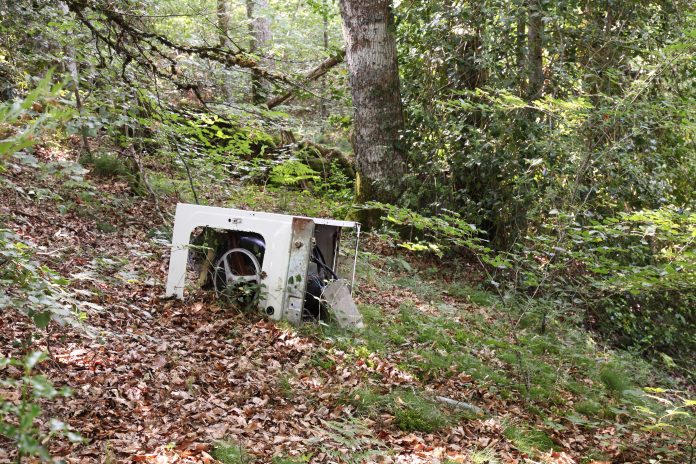It has been revealed that taxpayers money is being used to clean up fly-tipping incidents as opposed to being allocated to police and fire brigade services
The UK government reported that in 2018/19, local authorities in England dealt with over 1,072,000 incidents of fly-tipping. This number is an increase of 8% on the previous year. However, with lockdown having closed public tips and recycling centres across the country, reports indicate that this number could increase by over 70% in 2020.
Of course, with an upwards trend of fly-tipping reports since 2012, the price of clearance is also steadily increasing. In 2018/19, this was at a cost of £12.9 million to the UK taxpayer. This in turn caused implications for police and fire brigade services.
Burning through money
Setting dumped items on fire after fly-tipping is common practice for criminals attempting to destroy their waste. These fires cause numerous problems for the areas where waste is dumped, which is commonly private farmland or on the side of highways. The use of fire brigades to combat this activity consequently uses taxpayer’s money and community resources.
On 6th May 2020, Cleveland Fire Brigade responded to the same fly-tipping incidence twice after it had been added to and reignited. Area manager prevention Steve Johnson commented, “To be called out twice is a complete waste of our resources especially at a time of lockdown when everyone should be working together to support each other.”
While the consequences of burning waste has numerous dangers, including the release of pollution and chemicals into the atmosphere, the financial cost and resources use is equally concerning. Cleveland Fire Brigade, for example has a continually reducing budget. In 2018/19 they budgeted £17.08 million for combined fire control and firefighting and rescue. In the same year, fire control dealt with 12,598 emergency calls. This can indicate that each fire brigade callout can cost around £1,355. In the fly-tipping incident mentioned above, this cost was repeated twice.
When considering that firefighting is literally a matter of life and death in some circumstances, it is worrying to consider people using up the resources of this service through reckless fly-tipping and arson.
Recovering the cost through enforcement
Fly-tipping is, of course, a criminal offence. The sentences that being caught for this act vary depending on its severity. For example, if the incident severely threatens personal health or the environment, you can be fined up to £50,000 by a magistrates’ court. A fixed penalty notice of £150 to £400 can also be enforced.
Despite this, the money recovered from fly-tipping nowhere near matches the cost to the taxpayer. In 2018/19, the government reported that they recovered £1,090,000 through fines. When compared to the cost of clearance in the same year, this covers only 8% of the bill.
The British taxpayer is losing against the fly-tipper, who is only footing part of the costs involved with clearing their own mess. Rubbish clearance and removal should be completed by trusted professionals. The financial cost of fly-tipping is near to incalculable, and the amount of services we rely on to combat this problem is depleting essential resources put in place to make our environment, streets, and homes safer.
Sources
https://www.gov.uk/government/statistics/fly-tipping-in-england
https://www.clevelandfire.gov.uk/2020/05/fly-tipping-fire-sparks-angry-warning/
https://www.clevelandfire.gov.uk/about/fire-authority/documents-publications/financial-reports/
https://commonslibrary.parliament.uk/research-briefings/sn05672/




![Europe’s housing crisis: A fundamental social right under pressure Run-down appartment building in southeast Europe set before a moody evening sky. High dynamic range photo. Please see my related collections... [url=search/lightbox/7431206][img]http://i161.photobucket.com/albums/t218/dave9296/Lightbox_Vetta.jpg[/img][/url]](https://www.openaccessgovernment.org/wp-content/uploads/2025/04/iStock-108309610-218x150.jpg)






